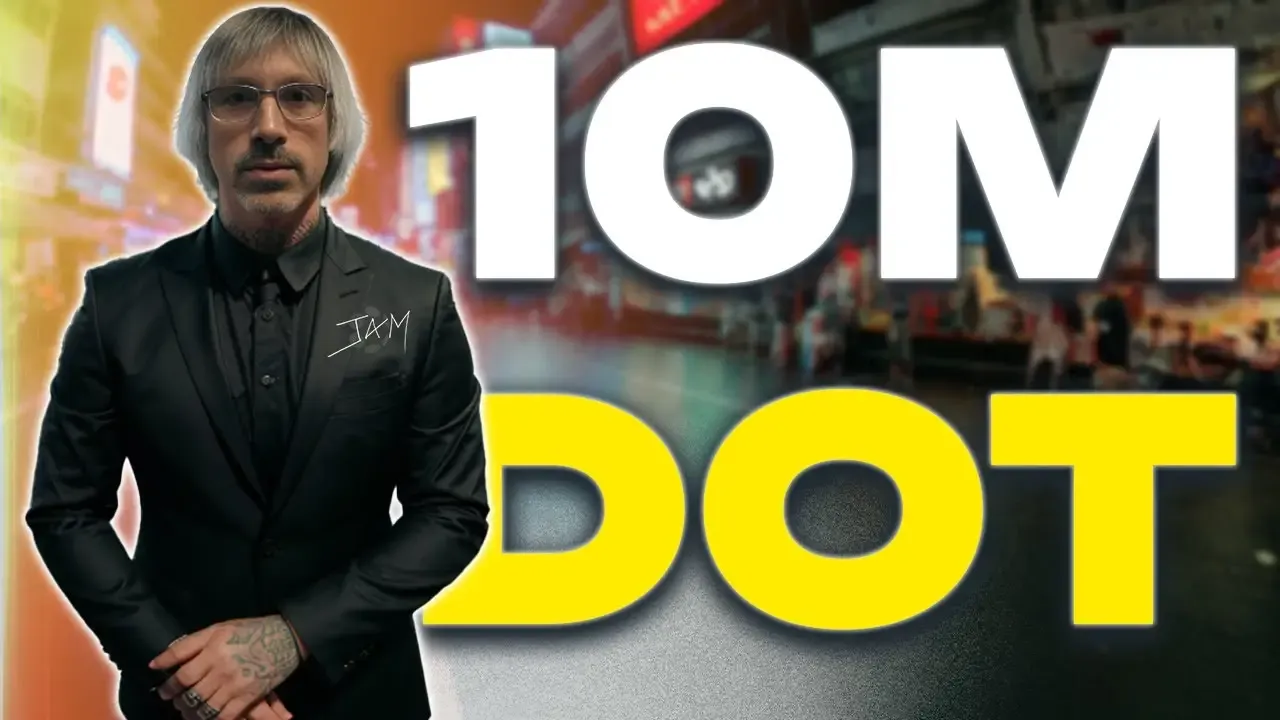Shape Polkadot’s Future with the JAM Prize: 10M DOT
Ce contenu n’est pas encore disponible dans votre langue.

The Web3 Foundation has unveiled an ambitious initiative, the JAM Prize, designed to propel the future of decentralized technology through the Polkadot ecosystem. With a staggering prize pool of 10 million DOT and 100,000 KSM, the competition aims to incentivize and support the development of the Join-Accumulate Machine (JAM), a groundbreaking protocol envisioned as the successor to the Polkadot relay chain.
Understanding JAM: The Future of Polkadot
The Join-Accumulate Machine (JAM) represents a significant evolution in the Polkadot ecosystem, offering enhanced smart contract functionality and a robust foundation for decentralized applications. JAM is poised to replace the existing Polkadot relay chain, delivering improved scalability, security, and decentralization. This initiative is not just about creating new technology but also about ensuring that this technology is decentralized and resilient from the outset.
Competition Goals: Fostering Decentralized Innovation
The primary objective of the JAM Prize is to encourage the development of diverse client implementations of the JAM protocol. By doing so, the Web3 Foundation aims to enhance the decentralization and resilience of the JAM network, ensuring that it can withstand various challenges and remain a robust infrastructure for decentralized applications.
Judging Process: A Rigorous Evaluation
Submissions to the JAM Prize will be rigorously evaluated by members of the Polkadot Fellowship. These seasoned experts in the Polkadot ecosystem will judge the submissions, ensuring that only the most promising and well-implemented solutions are rewarded. The Web3 Foundation will coordinate its actions based on the decisions made by the Fellowship, further underscoring the importance of decentralized governance in the Polkadot ecosystem.
The Path to Implementation: Structured Milestones
The JAM Prize is structured around a series of milestones that teams must achieve to progress in the competition. These milestones are designed to ensure that the development of JAM implementations is thorough and methodical:
- Importer: State-transitioning conformance tests must pass, and teams must demonstrate the ability to import blocks. Success at this stage could lead to consideration for Fellowship rank retention or promotion.
- Author: Teams must produce fully conformant blocks, including networking and off-chain capabilities. This milestone offers potential access to private hardware for performance testing.
- Half-Speed: Achieving conformance and Kusama-level performance, including PVM implementation, allows teams to access the JAM TOASTER for trial and debugging.
- Full-Speed: At this stage, teams must meet Polkadot-level performance, which includes a free professional external audit as a potential benefit.
- Secure: The final milestone requires a fully audited implementation, significantly enhancing user confidence in the solution.
Language Sets and Prize Tiers: Encouraging Diverse Contributions
The competition is open to a wide range of programming languages, categorized into different language sets. Each set has a maximum prize allocation per milestone, encouraging diversity in technical approaches:
- Cooperate Code: Languages like Java, C#, and Go.
- Quick Code: Includes C, Rust, and Swift.
- Cute Code: Python, Ruby, and JS are part of this set.
- Correct Code: Ada, Julia, and Scala.
- Mad: Unique languages such as Brainfuck and Whitespace, with a specialized prize of 5,000 KSM.
Web3 Foundation Strategic Advice for Teams
The Web3 Foundation recommends that teams approach the competition methodically, starting with foundational elements such as block/header data structures and serialization. By progressively advancing through more complex tasks, teams can enhance the competitiveness of their submissions.
Conclusion: A Bold Step for Polkadot’s Future
The JAM Prize is not just a competition; it is a pivotal moment in the evolution of decentralized technology. With the substantial support from the Web3 Foundation, this initiative is set to push the boundaries of what is possible in the Polkadot ecosystem, fostering innovation, decentralization, and resilience.
- Here you can access the official landing page of the JAM Prize.

